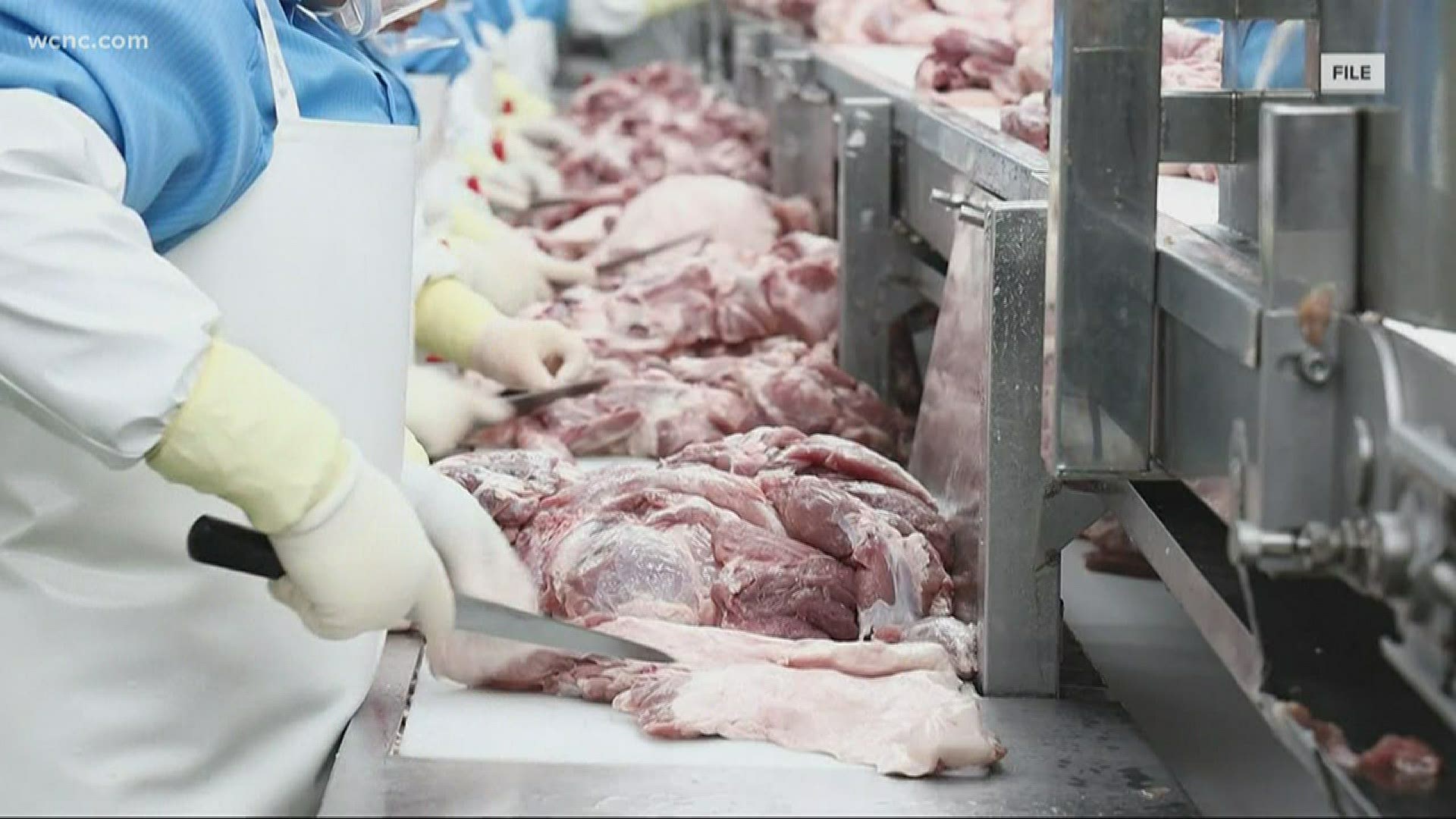CHARLOTTE, N.C. — As if restaurants weren’t having a hard enough time staying afloat during the pandemic, supply chain issues are beginning to cause a shortage of certain meat products.
President Trump signed an executive order to keep meat plants open to prevent a mass shortage of meat, unfortunately, there have been 4,913 coronavirus cases throughout 115 meat processing plants in the country and it’s slowing down production.
“Beef is the only thing having an issue right now everything else is fine, turkey is plentiful, poultry is plentiful,” said Moo & Brew operating manager Ryan Grant.
Grant says that doesn’t help him, because his restaurant is a burger place.
“For example, if we order three boxes of meat, they’ll be like alright, we can only bring you one,” Grant said. "But then when they showed up they’d have two. So it was kind of a guess of what you’re going to get.”
He’s not the only burger place feeling the impacts, Shake Shack says its seeing significantly higher beef prices, and Wendy’s says some of their menu items may be temporarily limited at some restaurants because of the production issues, including in South Carolina.
“Yea, I mean it’s just been tough,” Grant said. “If you don’t evolve you’re going to die.”
Grant says restaurants like his will need to get creative to keep business moving.
“Offer them some kind of alternative maybe make a special on turkey or something like that,” Grant said, “we do have a salmon burger that we make in house.”
He says it may not be ideal, but it’s the reality of what we’re all facing.
“Hopefully people are paying attention and will be more understanding of what’s going on,” Grant said.
Grant says communities continuing to support small businesses is the only way they’ll survive.
“I don’t think everyone’s going to make it to the other side, but I think people are real supportive of local spots," Grant said. "So that’s one bright spot in the middle of all of this."
Grant says hopefully the processing plants can get things turned around and running at a more normal pace soon, but of course, that depends on how quickly these plants can make sure their working environments are safe for their workers.
MORE ON WCNC CHARLOTTE:

